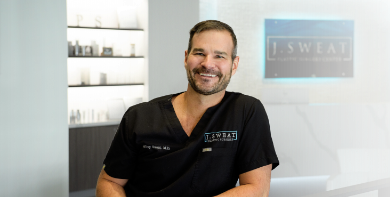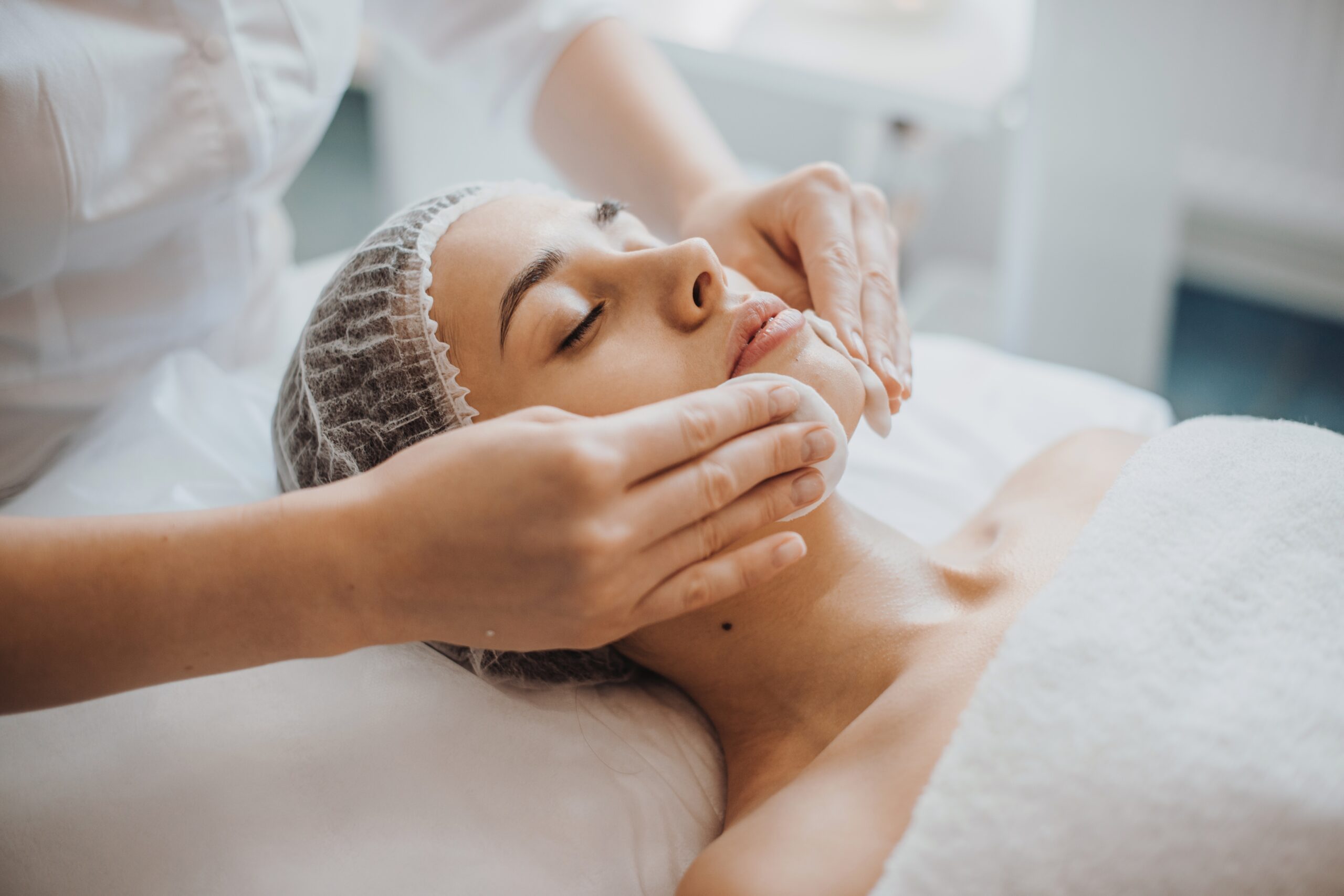ON THIS PAGE
What is an IPL Laser?
IPL treatment, or intense pulsed light therapy, treats unwanted pigmentation on the skin. This unwanted pigmentation can be from sun damage, melasma, scars, broken capillaries, and hyperpigmentation from acne or brown spots. The intense pulsed light technology targets these areas of pigment with light energy without damaging the surrounding skin and draws it closer to the skin’s surface with each treatment, where, eventually, it will flake off, leaving you with clearer, more even skin. The light pulses from the IPL device can also address some texture, so you may also notice that fine lines and acne scar depressions can be improved due to increased collagen production. Overall, the intense pulsed light emits light waves to the targeted areas to improve discoloration and redness and provide full skin rejuvenation.
Who is a Candidate?
Intense pulsed light treatments can treat various skin conditions that cause pigmentation issues. Patients experiencing rosacea (skin redness), hyperpigmentation (vascular and pigmented lesions), sun spots, uneven skin texture, vascular lesions, and scars such as stretch marks are good candidates for this laser treatment to reduce unwanted pigmentation in the skin. The number of treatment sessions needed will vary by the size of the treatment area and the severity of the pigmentation. Dr. Sweat will consult candidates regarding the proper treatment plan for these laser treatments for their unique skin care needs. For most conditions, patients can expect to undergo anywhere between two and six procedures with four weeks in between.

Jeffery A.Sweat, M.D.
“Bringing out inner confidence and helping the patient through their own personal journey makes what we do so fun and rewarding.”
Meet Doctor Sweat
What our patients say
View Testimonials
The Procedure
Before your IPL procedure, your skin will be cleansed to ensure a clean treatment area and a cooling gel may be applied to enhance comfort during the session. Protective eyewear will also be provided to shield your eyes from the intense light pulses. The IPL device works by emitting multiple wavelengths of light that penetrate the skin to target pigmentation, redness, and other irregularities. The light energy is absorbed by pigmented areas, breaking them down without causing harm to the surrounding skin. Each IPL session typically lasts about 20-30 minutes, depending on the size and number of treated areas. After the procedure, patients can resume most normal activities immediately, although some redness or mild swelling may occur.
Benefits
of Intense Pulsed Light Therapy
Intense Pulsed Light source therapy is a versatile and effective treatment that addresses a variety of skin concerns:
The Results
For best results with IPL therapy, patients should avoid unprotected sun exposure during and after laser therapy treatments. IPL treatments can reverse pigmentation, so they will provide improvement until further aging or further effects of skin conditions show up. In general, the results are long-lasting, but it is important that the patient properly protects their skin and stays in contact with Dr. Sweat’s office to schedule maintenance treatments each year, particularly after a season of increased sun exposure.

Contact Us
Contact J. Sweat Plastic Surgery today if you’re seeking more information about our services or want to schedule a consultation. Fill out the form, and our friendly team will get back to you as soon as possible.
Reach Out



